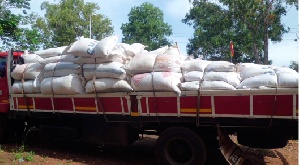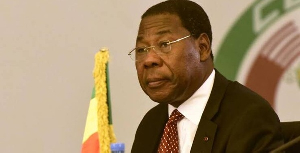The World Cocoa Foundation (WCF) says its US$70million funding for the country’s cocoa sector is to cover activities that are expected to reach more than 60,000 cocoa-growing households by February 2018.
The support is also to increase farm-level cocoa productivity to 1,000kg/ha; to improve service delivery efficiency including access to planting materials, fertiliser and agrochemicals; and improve farmer resilience through the production of food crops.
The support is part of implementing of Phase Two of WCF’s Cocoa Livelihood Programme (CLP) and will afford cocoa-producing households in the country opportunity to produce food crops alongside cocoa, thereby accessing important economic, nutritional and environmental benefits.
Mrs. Suzanne Ngo-Eyok, Director of CLP II, told the media at a signing ceremony between the WCF and the Ministry of Food and Agriculture (MoFA) in Accra that the programme has already successfully mobilised chocolate and cocoa companies to actively engage with the cocoa farmers and increase direct investment in selected cocoa farming communities.
“What we are doing is to use the expertise and resources from MoFA to assist our farmers diversify their food crops, mainly cassava and plantain.
“It is really to make sure that you are getting income from the production of cocoa, but you are not obliged to buy food. You can also grow your own food and invest the money to get things like education, provision of services, improving your life conditions,” she said.
Mrs. Ngo-Eyok indicated that the WCF’s CLP programme, which started in 2009 with a 10-year lifespan, is operating in the four cocoa-producing countries of West Africa -- namely Ghana, Cameroon, Cote d'Ivoire and Nigeria.
She explained that the programme will create a mechanism for knowledge-exchange and utilising the skills of MOFA’S technical experts dedicated to CLP II activities in the area of food crops.
“It will link MoFA’s food crop technical experts to WCF member-companies in the country, and provide technical assistance in curricula development and training activities for food crops.
“It will again ensure cocoa farmers’ access to planting materials and other food crop inputs by linking chocolate and cocoa companies to MoFA planting materials production centres and inputs suppliers. “Cocoa-producing households in the country will have additional income and become more resilient by diversifying income opportunities during cocoa’s non-harvest season,” she stated.
The WCF is a non-profit international organisation, representing more than 110 members that comprise an estimated 85 percent of cocoa trade and chocolate production.
The regional programme is being managed by WCF with funding from the Bill & Melinda Gates Foundation, the Walmart Foundation, the Dutch Sustainable Initiative IDH, and 15 chocolate and cocoa companies that are members of WCF.
In Ghana, the programme involves Mondelez International, Noble Resources and The Hershey Company. Mr. Fiifi Kwetey, signing on behalf of MoFA, said WCF -- which has a long-standing relationship with the Ghana Cocoa Board, is expanding its partnership base with government institutions to include a focus on food crops.
“The programme will provide training in relevant techniques and technologies for selected food crops such as plantain and cassava,” Mr. Kwetey remarked.
Business News of Wednesday, 8 October 2014
Source: BFT













